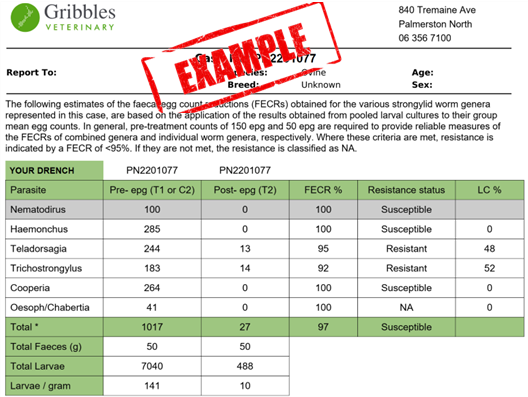RACHEL WHITEHEAD
Grazing ruminants in New Zealand are rarely free of worm infection, though effects on stock health and productivity vary widely. Clinical effects of enteric parasitism include ill thrift, diarrhoea, anaemia, and death in severe cases.
The degree of damage is influenced by the numbers and identities of the parasites present, host age, immunity, general health, and nutrition.
Anthelmintic resistance is a growing issue, therefore investigation of potential resistance is an important tool in managing production-limiting effects on-farm. Faecal egg count reduction tests (FECRT) inform you about the drench resistance status of the parasite population on a specific property. This helps ensure the drenches in use are highly effective.
A significant driver of drench resistance is the continued use
of ineffective drench products.
This season we have launched a new faecal egg count reduction test (FECRT) report, which will calculate anthelmintic susceptibility for different parasites for each drench. This new report is farmer ready, so you can use it as a tool to discuss what is happening on-farm.
To make sure we receive all the information required for this new report, there is a new submission form available to use for this testing. All submission forms can be found on our website here.
In order to compile this report, both larval cultures and FECs for all control, pre-drench and post-drench samples must be performed at one of our Gribbles Veterinary laboratories. This ensures we have all the data needed to calculate the susceptibility. See example report below.

